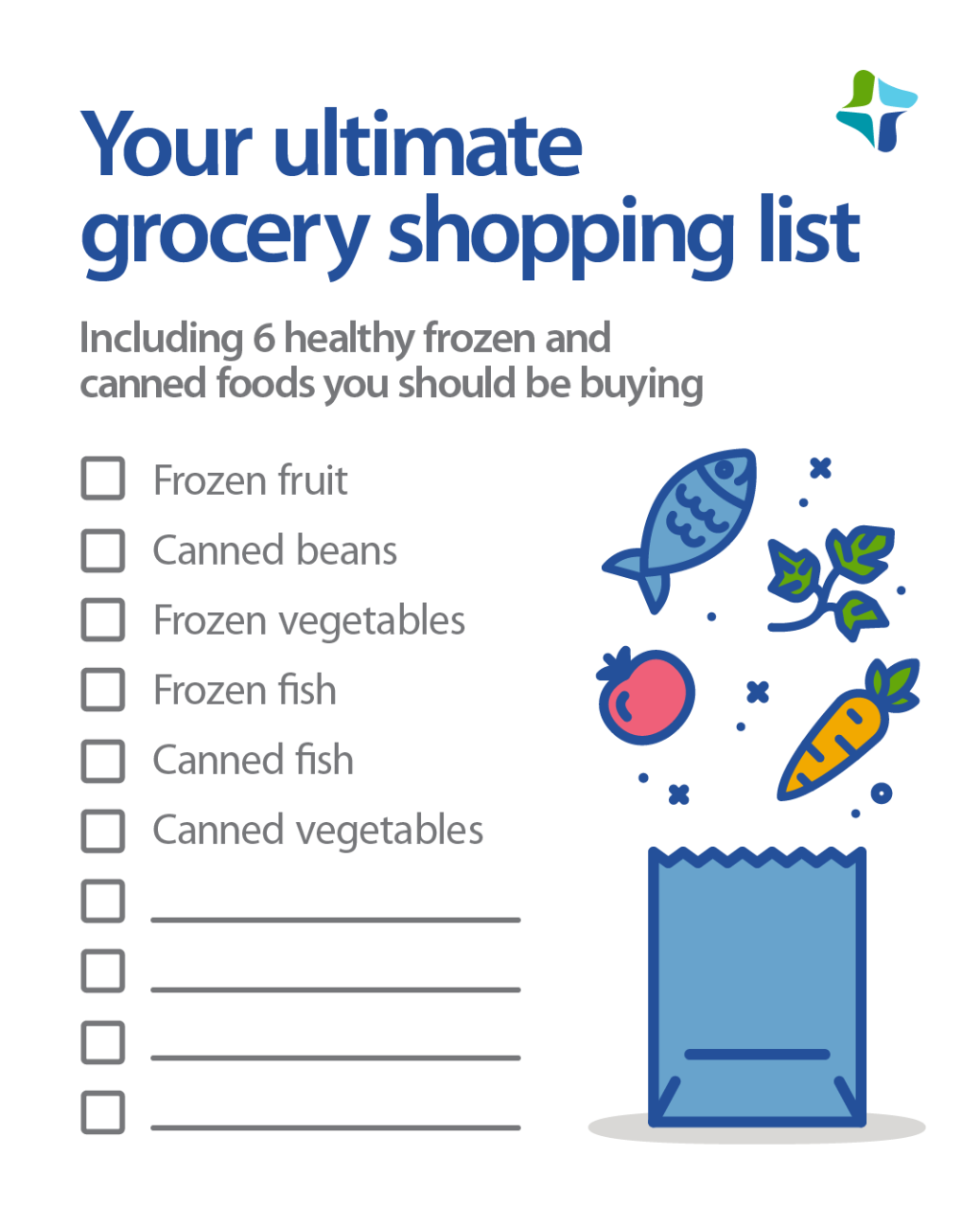Finding and preparing healthy meals aren’t entirely hinged on having fresh food and produce. Frozen and canned foods may get a bad rap, but they can also be as nutritious as their fresh counterparts and are more affordable and accessible all year round. Here are some of the healthiest frozen and canned foods you can buy:
- Frozen fruit
- Canned beans
- Frozen vegetables
- Frozen fish
- Canned fish
- Canned vegetables
Read on to learn more about each item and tips on how you can choose frozen and canned food options wisely on your next grocery run.
Frozen fruit
Of the healthy frozen foods, fruit is the most widely available. Frozen berries, for example, are harvested and packed at peak season, maintaining their nutritiousness once they are frozen. Compared to their fresh counterparts, frozen fruits are also more affordable and can even be more nutritious, as fresh fruits lose their nutrients the longer they go uneaten.
When choosing frozen fruits, make sure they come as close to their natural form as possible. Here are some ways how to eat frozen fruit:
- Blended into fruit ice pops
- Fruit smoothies or milkshakes
- Jams or compotes
- On their own as frozen snacks
Canned beans
Beans and legumes are an oft-overlooked staple but are among the healthiest, nutritionally dense foods you can have in your pantry. They are packed with fiber and protein but are low in fat, making them an excellent option for people trying to lower their harmful cholesterol levels. Here are some examples of canned beans to include in your meals:
- Chickpeas
- Black beans
- Pinto beans
- Red kidney beans
- Lima beans
- White beans
Frozen vegetables
Studies show that vegetables don’t lose many nutrients when undergoing the industrial freezing process. Frozen vegetables can sometimes be a more convenient option, as fresh vegetables tend to have a shorter shelf life once harvested. Here are some healthy frozen vegetables you should consider stocking in your freezer:
- Spinach
- Asparagus
- Broccoli
- Peas
- Carrots
- Kale
- Squash
- Zucchini
A great way to prepare frozen vegetables is to thaw and roast them, throw them into hot soups, or blend them into sauces or smoothies.
Frozen fish
Fish is among the healthiest meats out there, but buying them fresh can come at a steep price. Frozen fish lose no nutritional value, and flash freezing is a common tactic used by fishers and fishmongers to keep their catch fresher for extended periods. Here are some examples of frozen fish you can buy:
- Halibut
- Tilapia
- Pacific cod
- Catfish
- Walleye
- Swordfish
When choosing frozen fish, it’s ideal to avoid oily fish such as tuna, salmon, and sardines as they don’t freeze very well. To prevent degrading the texture and flavor of frozen fish, make sure to thaw them properly by relocating them from the freezer to the fridge overnight or putting them in a resealable bag to submerge in a pot of cold water for an hour.
Canned fish
While oily fish is not ideally frozen, they preserve well as canned foods. They are an easy way to give your meals a boost of protein and Omega-3, not to mention they are affordable and can stay in your pantry for long periods. Here are some canned fish you can stock up on:
- Salmon
- Sardines
- Tuna
- Mackerel
Because some canned fish can contain a high amount of sodium or oil, you should always check the nutrition label for sodium content or opt for canned fish packed in water and not oil.
Canned vegetables
Canned vegetables are a wonderful and healthy alternative to keeping fresh vegetables on hand, especially when not all vegetables are available all year long. Some canned vegetables even present a more convenient way to consume your daily vitamins, as they are easier to prepare and integrate into busy schedules. Here are some of the healthiest canned vegetables you can buy:
- Spinach
- Tomatoes
- Corn
- Pumpkin
- Peas
- Green chiles
- Olives
- Beets
Not all frozen and canned foods are created equal, so it’s always best to check nutrition labels when you’re unsure. Avoid foods that include any added fat, sugar, and salt, which may come in sauces, syrups, or seasoning.
Talk to a St. Joseph and Texas A&M Health Network primary care physician about making nutritional and dietary adjustments that best suit your lifestyle.





